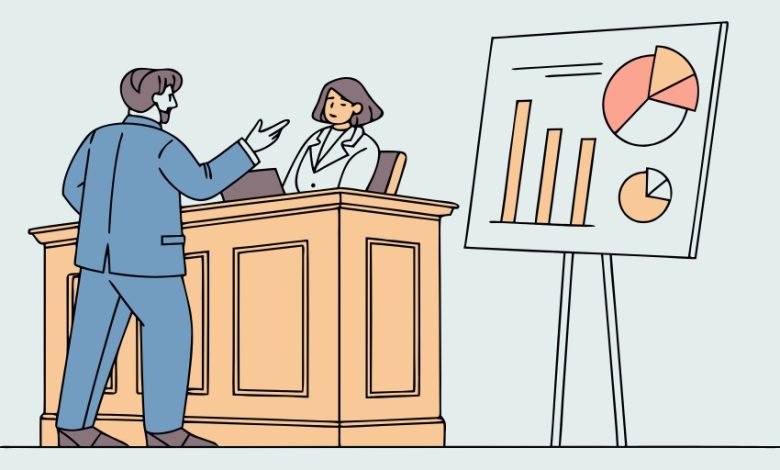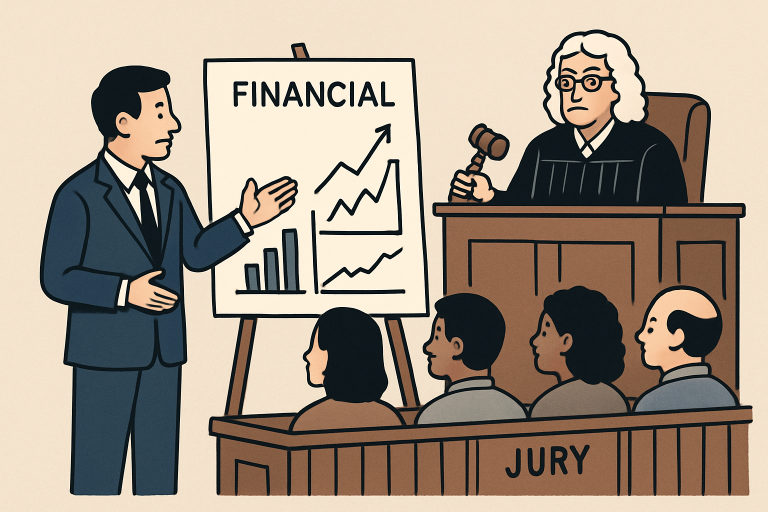How Financial Expert Witnesses Strengthen Economic Damage Claims

Key Takeaways
- Financial expert witnesses offer objective analyses that substantiate economic damage claims.
- They assist in quantifying losses, ensuring accurate and defensible damage assessments.
- Effective collaboration between attorneys and financial experts enhances case outcomes.
In legal disputes where financial stakes are high, the role of financial expert witnesses cannot be overstated. These professionals possess the expertise to clarify complex financial issues, providing impartial insight that is vital for both courts and juries. The reliance on financial expert witness services has grown as attorneys and clients recognize the benefit of objective, detailed analyses that withstand legal scrutiny and skepticism. When economic damage claims are at the center of litigation, the testimony and reports produced by financial experts can significantly impact the way financial data is perceived—transforming numbers and forecasts into convincing evidence. Their input not only anchors the narrative with credibility but also ensures that losses are thoroughly quantified and defensible across all phases of litigation.
Role of Financial Expert Witnesses
Financial expert witnesses contribute an unbiased viewpoint grounded in strict economic principles, drawing on substantial experience and professional integrity. Their primary function is to shed light on complex financial matters that might otherwise be confusing or misleading. Through courtroom testimony, written reports, and consultation, they translate technical or intricate financial details into clear, actionable facts. These experts can address issues ranging from forensic accounting to business interruption analyses, providing context, methodology, and data interpretation that are crucial in resolving questions of liability and damage calculation. As a result, their input is often a decisive factor in establishing the veracity of financial claims before the court.
In many jurisdictions, courts require that any expert witness offering opinions in a case must not only be qualified based on credentials but also demonstrate objectivity and relevancy in their specialty areas. This is especially important in cases involving commercial litigation or personal injury, where the credibility of financial damage claims directly impacts the court’s decision.

Quantifying Economic Damages
Thorough, evidence-based quantification is at the heart of economic damage claims. Financial experts use tailored methodologies to estimate and explain losses, distinguishing between direct and indirect damages as appropriate for each case. Core analyses may include:
- Lost Earnings Analysis: Calculating wages, bonuses, and benefits that would have been realized had the incident not occurred.
- Business Valuation: Establishing the fair market value of a business subject to harm through either asset, income, or market approaches.
- Cost Estimation: Projecting the present and future costs for treatment, repair, lost opportunities, or continuing harm.
These approaches are customized for each scenario to reflect economic realities and help ensure that the restitution or damages sought are reasonable and justified. Experts also often employ industry standards and current market data in their calculations, which bolsters the reliability of their findings.
Collaboration Between Attorneys and Experts
Successful litigation involving economic damages frequently hinges on the collaboration between attorneys and financial experts. Attorneys rely on financial experts to break down calculations, forecast future losses, and explain financial theories in language that is understandable to a lay audience. Likewise, experts depend on attorneys for legal context, timelines, and the nuances of specific claims. This partnership reinforces the factual basis of the case. It ensures that all evidence, calculations, and interpretations presented to a judge or jury are both defensible and built on sound methodology. When attorneys and expert witnesses work in sync, their combined strengths often improve the clarity and impact of the claims.
Impact on Case Outcomes
The testimony of a qualified financial expert can greatly influence the outcome of a legal dispute. Their independent, well-documented analyses often help tip the scales toward favorable settlements or trial verdicts. For example, in high-value personal injury or contract cases, juries and judges rely on clear, objective financial assessments that precisely show how injuries or breaches led to monetary losses. Many high-profile cases have shown that when credible financial analysis is provided, the awards tend to more accurately reflect the actual economic harm experienced. The accuracy and reliability of expert financial witnesses remain highly valued assets in legal proceedings.
Choosing the Right Expert
The effectiveness of an economic damage claim is directly tied to the qualifications and skills of the financial expert selected. Key considerations when retaining such an expert include:
- Credentials: The expert should hold relevant certifications (such as CPA, CFA, or CFE) and possess a solid academic background.
- Experience: Look for prior casework similar in complexity and scale to your own matter.
- Communication Skills: The ability to distill highly technical financial data into logical explanations that are persuasive and understandable to non-experts is paramount.
It is equally essential to ensure the expert has no conflicts of interest and can maintain strict objectivity throughout the case. A reputable financial expert with litigation experience can significantly improve the likelihood of success in economic damage disputes.
Conclusion
Financial expert witnesses are indispensable to claims involving economic damages. Their rigorous analyses do more than bolster the credibility of legal strategies—they enable attorneys to pursue the fairest and equitable outcomes for their clients. As litigation becomes increasingly data-driven, the strategic use of expert financial testimony will only continue to grow in importance.
